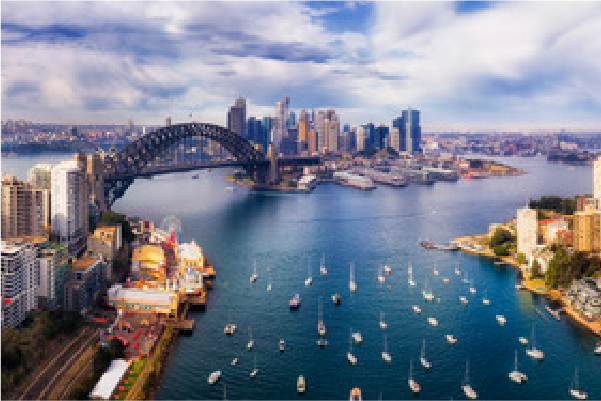In a recent report, Deloitte estimates that Australia has lost some $100 billion (AU$147bn) in tourism expenditure since the beginning of the pandemic, split almost evenly between international and domestic travelers.
Australia’s lockdowns were particularly harsh for the hotel industry. For just under two years, the government imposed an almost total ban on international visitors and limited domestic travelers to their home states.
Occupancy rates at the height of the lockdown in August 2021 hovered around 30% and averaged lower than 45% for the whole of 2020 and 2021.
Occupancy had rebounded to 70% by October this year and average daily rates are also trending up, but the recovery has been constrained by the high cost of flights, the continued lockdown in China, and economic uncertainty in many of the other countries that traditionally sent tourists to Australia.
Deloitte expects domestic overnight trips to recover to 94% of pre-pandemic levels this year, but leisure travelers seem to have discovered a new love for the wide-open spaces outside of the main cities where hotels are concentrated. That may be good news for people selling camping gear and four-wheel drives, but it translates to a slow recovery for the hospitality industry.

The Deloitte survey indicated that the number of people intending to stay in a hotel had risen from 11% at the beginning of 2020 to almost 45% saying they were likely or very likely to use a hotel.
However, for the hotel industry, the real weak spots are international tourism and business travel.
International arrivals will reach 36% of pre-pandemic numbers this year and 66% next year. Deloitte says there is a lot of pent-up demand for travel, but the uncertainties around inflation, the disruption of the war in Ukraine, and the ongoing covid controls in China are all putting pressure on the market.
The more intractable problem may prove to be business travel. While leisure travel is returned to over 70% of pre-pandemic levels business travel was still half that of 2019, and the recovery is facing structural headwinds. Not only did a fifth of Australian business travelers say their organizations have permanently cut travel budgets and replaced them with virtual meetings, but many companies are also cutting travel as a way to limit their carbon footprint.
Deloitte warns that cities with the highest exposure to the corporate travel market, including Sydney, Canberra, Melbourne and Perth will face the greatest uncertainty during the recovery process.
Deloitte expects Australia’s hotel industry to remain under pressure as increasing supply adds to demand uncertainties. They forecast a short-term glut as some 6,000 new rooms come online this year – almost double last year’s tally – with offerings from brands including Ritz-Carlton and Le Meridien in Melbourne, and a W Hotel and Australia’s first Capella hotel in opening in Sydney.
Deloitte says the pipeline will slow in 2023 and 2024, pointing out that a number of developers have switched hotel projects to residential in the face of travel uncertainty.
Although Australia and most of its feeder markets are learning to live with covid, the trials of the hotel industry look set to continue. Changes in domestic travel patterns, the uncertain future of the global economy, and growing supply are all likely to weigh on the industry for some time to come.
